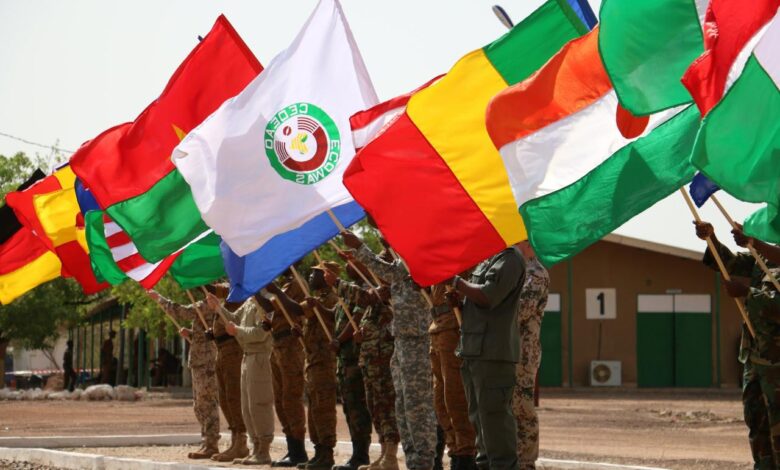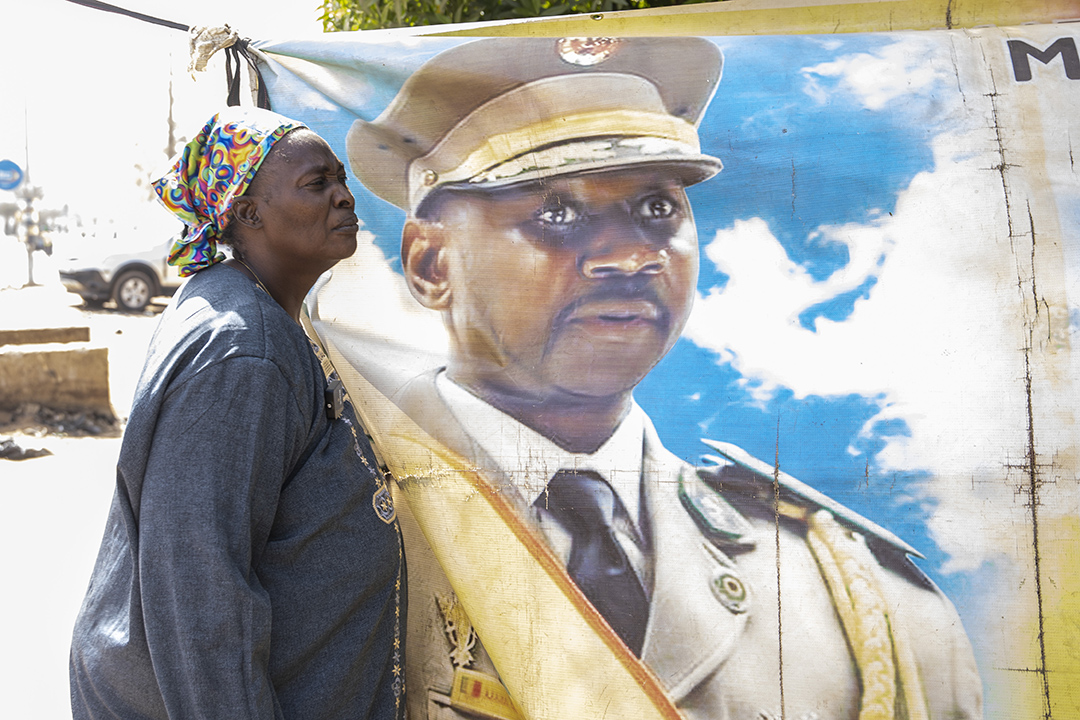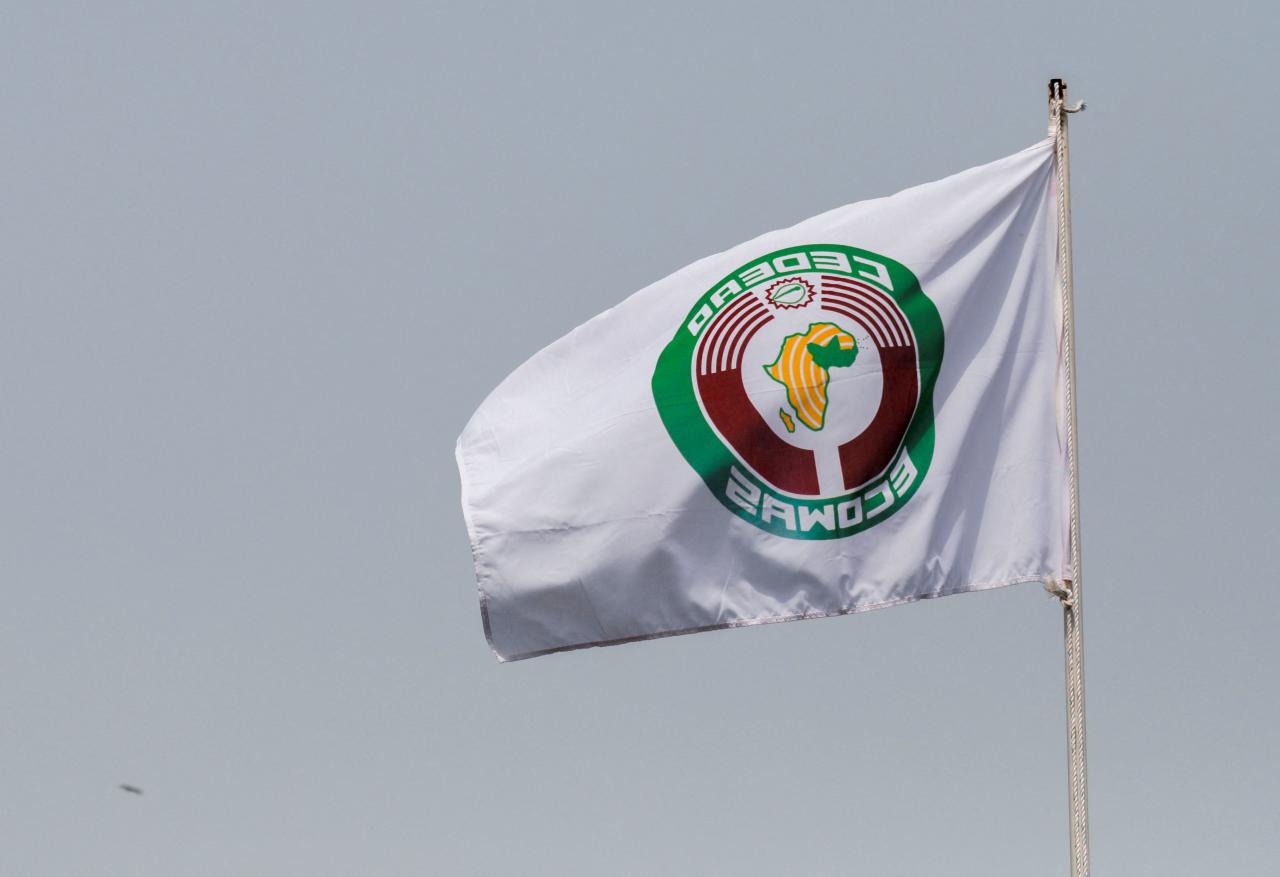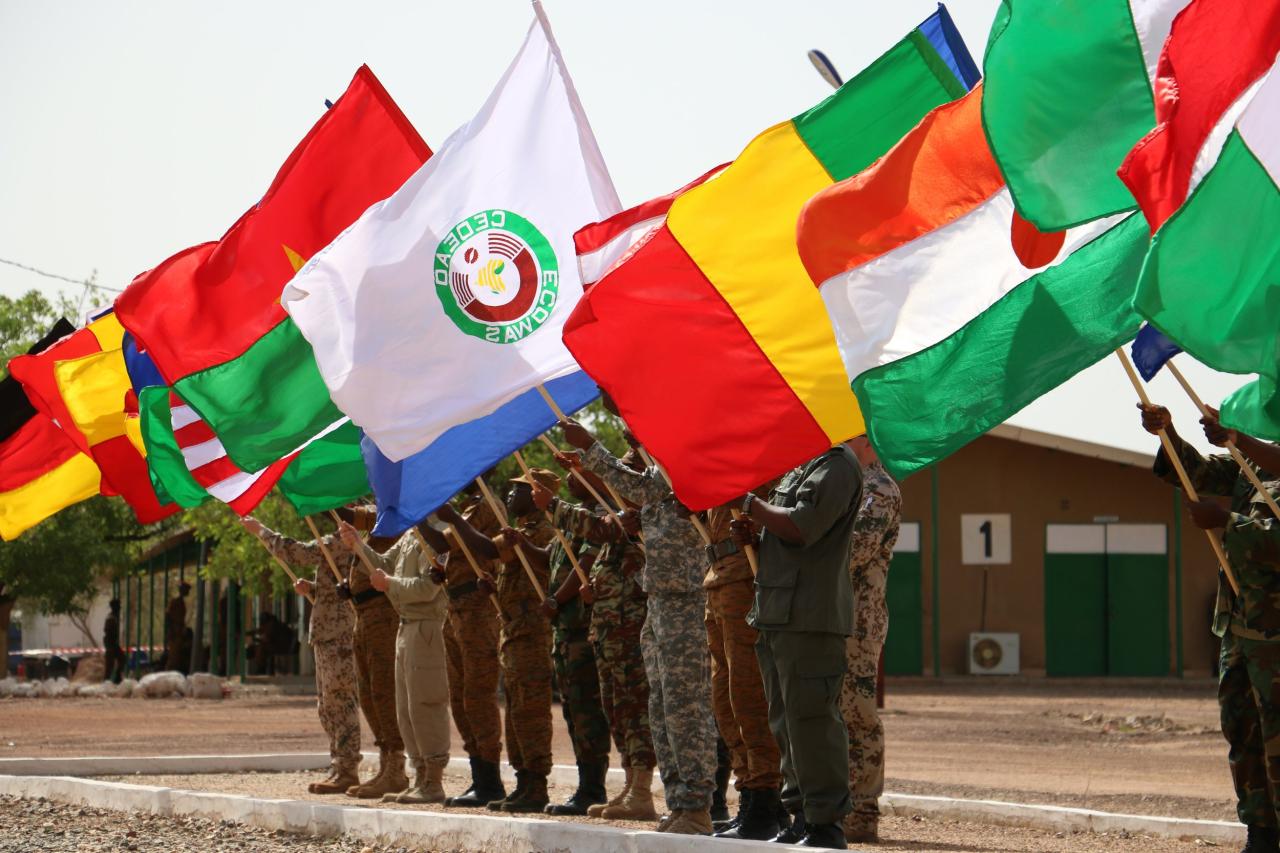
West Africa Junta Leave ECOWAS Implications
West Africa junta leave ECOWAS, a significant development with potentially far-reaching consequences for the region. This departure signals a shift in regional dynamics, raising questions about the future stability and economic prospects of affected nations. The implications extend beyond the immediate borders, prompting concerns about the influence of this move on the wider geopolitical landscape. We delve into the historical context, the current situation, and potential future scenarios.
The Economic Community of West African States (ECOWAS) has a history of attempting to mediate and intervene in political crises, often involving military juntas. This departure signifies a notable break from that tradition, leaving the region with a delicate balance of power and potential for instability. The specific reasons behind these decisions are varied and complex, reflecting the unique challenges faced by each nation.
Historical Context of ECOWAS and West African Juntas
The Economic Community of West African States (ECOWAS) was established in 1975 with the primary aim of fostering economic integration and regional stability in West Africa. Its creation was a response to the growing need for collaboration in the face of shared challenges, including economic disparities, political instability, and security threats. The organization aimed to achieve this through various initiatives, promoting trade, investment, and harmonizing policies across member states.
However, the region’s history of military coups and juntas has significantly impacted ECOWAS’s ability to realize its objectives.The history of West Africa is intertwined with the rise and fall of military regimes. Coups, often fueled by political grievances, economic hardship, and power struggles, have punctuated the region’s trajectory. These transitions often resulted in instability, disruptions to democratic processes, and a breakdown in regional cooperation, frequently jeopardizing the progress made by ECOWAS.
The impact of these juntas has varied, with some periods witnessing significant economic setbacks and social unrest, while others saw relative stability despite the absence of elected governments.
ECOWAS’s Role in Regional Stability
ECOWAS has historically played a critical role in regional peace and security. Its establishment represented a significant step towards regional integration and cooperation, aiming to address issues collectively rather than individually. The organization has a framework for conflict resolution and management. This includes measures like diplomatic mediation, economic sanctions, and, in extreme cases, military intervention. The underlying principle is to maintain the integrity of member states and to promote democratic governance.
The West African junta’s departure from ECOWAS is a significant development, raising questions about regional stability. Meanwhile, the recent news of Arthur Smith being hired as the Steelers’ offensive coordinator is certainly a noteworthy football development, especially given the team’s recent struggles. This hiring, like the junta’s exit from ECOWAS, suggests shifting power dynamics, though on vastly different scales.
Ultimately, the West African junta’s decision to leave ECOWAS underscores the complex challenges facing the region. Arthur smith hired steelers offensive coordinator This move, and the junta’s departure, could have unforeseen consequences for the region’s future.
History of Military Coups and Juntas in West Africa
Military coups have been a recurring feature in West African history. The frequency and impact of these coups have varied over time. Examples include the coup in Mali in 2020, the coup in Guinea in 2021, and the coup in Burkina Faso in 2022. These events highlight the persistent challenge of consolidating democratic institutions in the region. These actions often result in a loss of public confidence, economic instability, and regional tensions.
The impact on international relations is also significant, as these events frequently attract international condemnation and diplomatic pressure.
Evolution of ECOWAS’s Responses to Coups
ECOWAS’s responses to coups have evolved over time. Initially, responses were often reactive and inconsistent. However, the organization has developed a more structured and principled approach to dealing with such situations. This evolution has involved the development of clear guidelines, the implementation of sanctions, and the deployment of mediation efforts. The emphasis has shifted towards supporting democratic transitions and promoting long-term stability.
Key Treaties and Agreements Governing ECOWAS Intervention Policies
Several treaties and agreements underpin ECOWAS’s intervention policies. These documents establish the framework for regional cooperation and provide a legal basis for addressing security threats. The agreements emphasize the importance of democratic governance, respect for human rights, and peaceful conflict resolution. Specific protocols Artikel the procedures for handling situations that threaten regional peace and security.
Comparison of ECOWAS Interventions in Junta Situations
| Intervention Type | Description | Examples | Outcome |
|---|---|---|---|
| Diplomatic Mediation | Negotiations and dialogue to resolve the crisis peacefully. | Numerous instances where ECOWAS facilitated talks between junta leaders and opposition groups. | Mixed results; some successful in averting wider conflicts, others failed to achieve lasting peace. |
| Economic Sanctions | Imposing restrictions on trade and financial transactions with the offending nation. | Used in various instances to exert pressure on juntas and encourage compliance with democratic norms. | Varied impacts; sometimes effective in prompting dialogue, other times perceived as ineffective or counterproductive. |
| Military Intervention (Limited) | Deployment of armed forces to restore constitutional order. | Cases where ECOWAS troops were deployed to secure borders or assist in the return to democratic governance. | Often controversial, with mixed results; some interventions have contributed to regional stability, while others have raised concerns about sovereignty and interventionism. |
The Current Junta Situation in West Africa
The recent surge in military takeovers in West Africa has ignited significant concerns about regional stability and the future of democratic governance. While the historical context of coups and military interventions in the region is well-documented, the current wave presents unique challenges, particularly in terms of the specific justifications and responses from the Economic Community of West African States (ECOWAS).
Understanding the motivations behind these actions and the specific circumstances of each country’s situation is crucial to navigating the evolving political landscape.
Current Countries with Juntas in Power
West Africa currently has several countries under the control of military juntas. Identifying these nations, along with their respective circumstances, provides a crucial overview of the current political climate. Accurate and up-to-date information is paramount in comprehending the complex interplay of political, economic, and social factors that lead to these situations.
The West African junta’s departure from ECOWAS is a significant development, raising questions about regional stability. While the geopolitical implications are complex, it’s worth considering how climate change impacts events like snow polo in St. Moritz, a sport surprisingly vulnerable to changing weather patterns. Snow polo in St. Moritz highlights how even seemingly disparate events are connected.
This, in turn, sheds light on the broader challenges facing the region and the potential for future conflicts arising from climate-related issues. The West African junta’s decision is undeniably a pivotal moment.
- Guinea: The country’s junta, established following a coup in 2021, cited widespread corruption and mismanagement as key factors. They aimed to restore stability and ensure a transition to democratic governance, but progress has been slow, with ongoing criticism of human rights issues.
- Mali: The military junta in Mali, formed after multiple coups, highlights the deep-rooted political instability and the ongoing struggle for control. The junta claims to be working toward a democratic transition, but external actors and regional bodies express significant reservations. Concerns about the country’s relationship with neighboring countries and the impact of the ongoing conflict in the region are central to this issue.
- Niger: The coup in Niger, which occurred in July 2023, followed months of growing political tensions. The junta’s justification for the takeover centered on concerns about the country’s democratic processes, and the government’s perceived failings.
Specific Circumstances Leading to Each Junta’s Establishment
Understanding the specific circumstances surrounding each coup is crucial to assessing the potential for future instability and crafting appropriate responses. Detailed analysis of the conditions in each country is vital.
The West African junta’s departure from ECOWAS is a significant development, raising questions about regional stability. Meanwhile, the ongoing issues in the region seem to mirror recent financial scandals, like the alleged embezzlement at Eugene Weekly, a publication facing scrutiny for printing fraud. Eugene Weekly’s embezzlement printing scandal highlights the complex web of corruption and instability that often accompany political upheaval, making the West African junta’s departure from ECOWAS even more concerning.
- Guinea: Political tensions and a perceived lack of economic opportunity fueled public discontent. This, coupled with widespread accusations of corruption, provided the context for the 2021 coup.
- Mali: The junta’s formation in Mali was rooted in deep-seated political grievances and concerns over the efficacy of democratic governance. The ongoing conflict in the Sahel region has exacerbated these issues, creating a complex security and political environment.
- Niger: The Nigerien coup was characterized by public dissatisfaction with the government and concerns about its ability to effectively address economic and social challenges. Reports of human rights violations and a lack of transparency in government operations further contributed to the instability.
Reasons Behind Junta Actions
The justifications provided by these juntas often cite concerns about corruption, economic mismanagement, and a perceived need to restore order and improve governance.
- Guinea: The junta has cited economic mismanagement and corruption as primary justifications. Reports suggest a desire for a more transparent and accountable government.
- Mali: The junta has emphasized the need for greater security and stability in the face of regional conflicts and internal political disputes.
- Niger: The junta’s motivations include a lack of faith in the current government and concerns about the country’s direction.
Timeline of Events for Each Junta Situation
This table Artikels the significant events related to each junta’s establishment. It’s important to note that these timelines are not exhaustive, but they provide a concise overview of the key developments.
| Country | Key Events | Date |
|---|---|---|
| Guinea | Coup d’état | 2021 |
| Mali | Initial coup, subsequent coups | Various dates, beginning in 2020 |
| Niger | Coup d’état | 2023 |
Differences from Past Situations
The current situation in West Africa differs from past instances in several ways. Firstly, the regional response through ECOWAS has been more proactive, emphasizing a need for a coordinated and robust approach. Secondly, the involvement of external actors and the complexities of regional conflicts have added a new dimension to the situation.
ECOWAS’s Response to the Current Situation
ECOWAS, the Economic Community of West African States, faces a complex challenge in navigating the recent surge of military juntas in the region. Their responses have ranged from strong condemnations to carefully calibrated diplomatic efforts, often balancing the need for regional stability with the sensitivities of internal political dynamics. The organization’s actions are scrutinized as they grapple with upholding democratic principles while maintaining regional cohesion.ECOWAS’s current stance on juntas is unequivocal: they are fundamentally opposed to unconstitutional changes of government.
The organization emphasizes the importance of democratic transitions and the rule of law as cornerstones of regional stability. This stance has remained consistent across various crises, though the application and effectiveness of their policies have varied.
ECOWAS’s Stance and Actions
ECOWAS has consistently condemned coups and military takeovers, emphasizing their commitment to democratic principles and the rule of law. This condemnation is often accompanied by calls for the restoration of constitutional order and the release of political prisoners. Their approach includes a spectrum of actions, from issuing statements and imposing sanctions to direct mediation efforts.
The West African junta’s departure from ECOWAS is definitely a big deal, but it’s also interesting to consider the broader implications. For example, how do these political shifts impact naming traditions? Knowing how the name of a child is determined, like apellido bebe madre padre , is crucial for understanding cultural contexts. This whole situation underscores how interconnected global events truly are, and the ripple effects of decisions like this one can be surprisingly vast.
Specific Actions Taken or Considered
ECOWAS has employed a multi-faceted approach to address the junta issue. This includes:
- Diplomacy and Mediation: ECOWAS has engaged in extensive diplomatic efforts, deploying mediators to affected countries to encourage dialogue between the junta and civilian leaders. These efforts aim to facilitate a return to democratic governance through peaceful means. Past successes in mediation have often involved the involvement of international partners.
- Sanctions: ECOWAS has imposed sanctions on countries with juntas, targeting key individuals and sectors. These sanctions aim to exert pressure on the junta to comply with ECOWAS demands. The effectiveness of these sanctions is often debated, with some arguing that they can significantly impact the junta’s ability to operate, while others point to the complexities of regional trade and political relations.
- Suspension of Memberships: In some cases, ECOWAS has suspended the membership of countries with juntas, severing ties to isolate the junta from the regional community. These actions aim to create pressure for change, and have been seen as a serious measure in the past.
Comparison of Past Responses
Evaluating the effectiveness of past ECOWAS responses to similar situations is crucial. While some interventions have resulted in the restoration of democratic governance, others have proven less successful, highlighting the complexity of these situations. Factors such as the level of support within the junta, the involvement of external actors, and the domestic political landscape play a significant role in the outcome.
Diplomatic Efforts, West africa junta leave ecowas
ECOWAS’s diplomatic efforts often involve a combination of bilateral talks with junta leaders, regional summits, and collaboration with international partners. The success of these efforts is contingent on the willingness of all parties to engage in good-faith negotiations. Historical examples demonstrate that successful mediation often involves building trust and facilitating a conducive environment for dialogue.
Potential Impacts of Juntas Leaving ECOWAS
The recent trend of juntas in West Africa challenging the authority of ECOWAS has significant implications for the region. Their departure, whether through negotiated agreements or forced expulsion, will reshape the political and economic landscape. The potential for positive change, such as a return to democratic governance, alongside the risk of increased instability and conflict, must be carefully considered.
Potential Positive Impacts
The departure of juntas from ECOWAS could signal a return to democratic values and principles in the region. This could lead to greater political stability, fostering an environment conducive to economic growth and development. It could also empower civil society organizations and strengthen democratic institutions, leading to improved governance and human rights practices. Ultimately, it could encourage foreign investment and attract aid, bolstering the affected economies.
Potential Negative Impacts
The withdrawal of juntas from ECOWAS could exacerbate existing tensions and conflicts. Without the unifying influence of a regional body, the risk of renewed internal strife, cross-border conflicts, and the resurgence of extremist groups could increase. The lack of cooperation on security issues and the potential for a power vacuum could destabilize the entire region. The sudden shift in power dynamics could also lead to political maneuvering and instability.
Economic Consequences
The economic consequences for countries affected by junta departures could be substantial. The absence of ECOWAS support could hinder economic growth and development, potentially impacting trade, investment, and overall economic performance. Loss of access to regional markets, decreased foreign investment, and the disruption of supply chains are all potential outcomes. For example, a decline in regional trade could impact economies that heavily rely on intra-regional trade agreements.
Successful Transitions from Junta Rule
Several countries in the region have successfully transitioned from junta rule to democratic governance. These transitions, though not without challenges, offer valuable lessons for the future. The key elements often include the active involvement of civil society, the support of regional organizations, and a commitment to democratic reforms. For example, Ghana’s transition from military rule to democracy has been lauded for its relatively smooth process and the institutionalization of democratic practices.
Regional Security Implications
The potential regional security implications of juntas leaving ECOWAS are significant. The lack of a shared security framework could lead to increased border conflicts, the spread of violence, and the rise of criminal activities. It could also affect the ability of ECOWAS to effectively address transnational threats like terrorism and organized crime. This could manifest in the proliferation of weapons and the resurgence of regional conflicts, leading to instability in the affected countries.
Regional and International Perspectives

The fallout from West African juntas leaving ECOWAS extends far beyond the region’s borders, triggering complex reactions from regional bodies and the international community. Understanding these perspectives is crucial to comprehending the potential ramifications of this significant shift in West African geopolitical dynamics. Different international stakeholders, each with their own interests and priorities, respond in diverse ways to the unfolding situation, shaping the trajectory of events.The actions of juntas in West Africa, particularly their potential withdrawal from ECOWAS, create ripples that reverberate through the international sphere.
These events highlight the intricate web of relationships and power dynamics that shape the continent’s political landscape. The response, or lack thereof, from various international actors will play a significant role in shaping the future of the affected nations and potentially influencing the broader regional dynamics.
Perspectives of Other Regional Organizations
The African Union (AU) plays a significant role in mediating conflicts and promoting stability across the continent. The AU’s stance on the junta situations in West Africa is critical, given its responsibility for continental peace and security. The AU has demonstrated a nuanced approach, balancing concerns about democracy and good governance with the need to avoid escalating regional tensions.
Their involvement often takes the form of mediation efforts and diplomatic initiatives aimed at fostering dialogue between the junta leaders and democratic forces.
International Community’s Response
The international community’s response to the junta situations in West Africa varies based on the specific nation and the perceived threat level. Sanctions, diplomatic pressure, and aid packages are often employed, although their effectiveness is frequently debated. Economic sanctions, for example, can impact ordinary citizens and may not always achieve the desired outcome of regime change. The international community’s response is often a reflection of their specific interests in the region, and the specific economic and political realities of each country involved.
Role of External Actors
External actors, including Western powers and other international organizations, often have significant economic and political interests in West Africa. Their involvement can range from providing security assistance to influencing policy decisions. France, for instance, has a long-standing presence in the region, and its relationship with former colonial states and the current political climate can impact the stability of the region.
The role of these external actors is multifaceted and often intertwined with the economic and political landscape of the region.
Views of Key International Stakeholders
Key international stakeholders, such as the United States and the European Union, have expressed concerns regarding the democratic backsliding and human rights violations associated with junta rule. Their statements often emphasize the importance of upholding democratic principles and respect for human rights. The degree of concern and the specific actions taken by these stakeholders vary depending on their geopolitical interests and the specific context of each country.
The specific concerns of these stakeholders will often be reflected in their diplomatic approaches.
Comparison of Approaches of Various International Bodies
Different international bodies, including the UN, ECOWAS, and the AU, employ varied approaches to address the junta situations. The UN, with its broad mandate, often focuses on humanitarian aid and peacekeeping efforts. ECOWAS, as a regional organization, prioritizes regional security and stability, while the AU, with its continental scope, tries to find a balance between various competing interests.
The unique mandate and structure of each body influence the approach they take in dealing with the complex political dynamics in the region. These diverse approaches reflect the different priorities and perspectives of these international actors.
Potential Future Scenarios

The future trajectory of West African juntas’ relationships with ECOWAS remains uncertain. Several factors, including the junta’s commitment to democratic transitions, regional economic pressures, and the international community’s response, will play crucial roles in shaping these outcomes. Understanding these potential scenarios is critical for predicting the stability of the region and the long-term consequences for its people.
Potential Scenarios for Junta Situations
The current junta situations in West Africa present a complex web of potential outcomes. These outcomes will be influenced by the actions of the juntas themselves, the responses of ECOWAS, and the broader geopolitical context.
| Scenario | Description | Potential Impacts |
|---|---|---|
| Continued Instability and Conflict | Juntas remain entrenched, refusing to cede power, and possibly engaging in conflicts with neighboring states or opposition groups. Economic sanctions and diplomatic isolation may intensify, further hindering development. | Heightened regional instability, potential humanitarian crises, and further economic decline. Increased risk of cross-border conflicts and refugee flows. |
| Gradual Transition to Democracy | Juntas initiate a credible path toward democratic elections and civilian rule, potentially under pressure from ECOWAS or international actors. This transition may be gradual and face obstacles. | Increased stability, economic growth, and improved regional relations. However, challenges may remain related to the reintegration of ex-military leaders into civilian life. |
| Further Escalation of Regional Tensions | Disputes and conflicts among juntas and/or between juntas and their neighbors escalate, possibly fueled by competition for resources or power. | Worsening humanitarian crises, mass displacement, and a significant decline in regional economic activity. This could draw in other regional and international actors, further destabilizing the area. |
| Regional Cooperation and Mediation | ECOWAS and other regional bodies successfully mediate transitions and foster cooperation among nations, even those with junta governments. | Improved regional stability, economic cooperation, and a stronger sense of collective security. This outcome would likely involve significant diplomatic efforts and potentially lead to new mechanisms for regional conflict resolution. |
Potential for Conflict Resolution
The potential for conflict resolution hinges on the willingness of juntas to engage in good-faith negotiations and commit to democratic transitions. Mediation efforts from ECOWAS and international actors, coupled with sustained economic pressure, may be crucial in fostering dialogue and promoting peaceful transitions.
Possible Scenarios for Regional Stability
The stability of the region depends on several factors, including the degree of cooperation among ECOWAS members, the resolve of juntas to relinquish power, and the effectiveness of international support. A region characterized by democratic governance, economic growth, and respect for human rights is more likely to be stable and prosperous in the long term.
The West African junta’s departure from ECOWAS is a significant development, raising questions about regional stability. It’s fascinating to consider how these political decisions might intertwine with the lives of everyday people, especially in the context of recent celebrity news like the stars Harley Johnston, Oettinger, and Benn, who are all currently making headlines. Understanding these connections, however, requires a nuanced approach.
Ultimately, the West African junta’s move will undoubtedly have far-reaching implications for the region. stars harley johnston oettinger benn
Long-Term Consequences of the Current Situation
The long-term consequences of the current junta situations in West Africa could be severe. Continued instability could lead to economic decline, humanitarian crises, and increased migration. This could negatively impact the region’s social fabric, and political development.
Potential Catalysts for Positive Change
Several catalysts could drive positive change in the region. These include increased pressure from ECOWAS, stronger international condemnation of human rights violations, and a greater commitment from juntas to democratic transitions. Crucially, economic development initiatives and investment in education and infrastructure could provide alternatives to military rule.
Illustrative Examples: West Africa Junta Leave Ecowas

West African juntas leaving ECOWAS present a complex interplay of political, social, and economic factors. Examining historical precedents and current situations provides crucial insights into potential consequences and the evolving dynamics in the region. Case studies offer valuable lessons for understanding the challenges and opportunities inherent in these transitions.Analyzing specific examples of juntas leaving ECOWAS illuminates the diverse impacts these actions can have.
These impacts are not uniform and often depend on the specific context, including the political landscape, economic conditions, and the junta’s relationship with neighboring countries.
Case Study: The Gambia’s Departure (Illustrative Example)
The Gambia’s brief period outside ECOWAS, under President Yahya Jammeh, offers a nuanced perspective on the impacts of such departures. Jammeh’s regime, characterized by authoritarianism and strained relations with ECOWAS, ultimately faced significant international isolation. Economically, the withdrawal hindered access to regional trade agreements and development assistance, potentially impacting the country’s growth trajectory. Socially, the isolation contributed to a climate of fear and reduced freedom of movement.
The political instability stemming from Jammeh’s prolonged rule and his subsequent departure created an environment where the return to ECOWAS, in the end, became a necessity. The Gambia’s experience underscores the complex interplay of internal political factors and external pressures that can influence a junta’s decision-making.
Case Study: The Sierra Leonean Experience (Illustrative Example)
Sierra Leone’s experience with junta rule and its subsequent reintegration into ECOWAS highlights the long-term consequences of such decisions. The impact of civil war and political instability on the country’s socio-economic development was significant. Reintegration into ECOWAS, following the end of the war, facilitated the restoration of regional trade and cooperation, thereby contributing to economic recovery. The reintegration process itself, however, was complex and took time, highlighting the need for sustained efforts from both the junta and the regional body.
This case study demonstrates the long-term effects of junta rule and the significance of regional cooperation in achieving stability and prosperity.
Comparative Analysis of Junta Outcomes
| Criteria | Gambia’s Departure | Sierra Leone’s Reintegration |
|---|---|---|
| Political Impact | International isolation, strained relations, authoritarianism | Political instability, civil war, subsequent reintegration into regional cooperation |
| Social Impact | Climate of fear, reduced freedoms | Displacement, trauma, gradual restoration of freedoms |
| Economic Impact | Limited access to trade agreements, hindered development assistance | Economic recovery facilitated by regional trade, cooperation, and assistance |
| Regional Impact | Increased regional tension, potential ripple effects | Potential for regional stability, cooperation |
Geographical Representation of Junta Countries
The image would depict a map of West Africa, highlighting countries currently or historically experiencing junta rule. Color-coding could differentiate between active juntas and those that have reintegrated into ECOWAS. The map would visually illustrate the geographical concentration of these situations, offering a clear picture of the regional impact.
Socio-economic Conditions in the Region
An image could represent the region’s socio-economic conditions, potentially using a composite image. This image could include elements like poverty levels, infrastructure development, and access to education. This would provide a visual representation of the challenges and opportunities facing the countries experiencing junta rule and their reintegration into ECOWAS.
Closure
In conclusion, the decision of West African juntas to leave ECOWAS marks a pivotal moment. The departure carries both potential benefits and drawbacks, impacting the region’s political, economic, and social landscapes. The long-term effects remain uncertain, but the move undoubtedly underscores the complex and evolving dynamics at play in West Africa. Continued monitoring and analysis will be crucial to understanding the full ramifications of this significant change.
FAQ Insights
What are the potential economic consequences for countries whose juntas leave ECOWAS?
Loss of trade benefits, reduced access to financial assistance, and potential disruptions to supply chains are some of the potential economic repercussions. Specific impacts will depend on the individual country’s circumstances and the nature of its relationship with ECOWAS.
How might this departure impact regional security?
The departure could lead to increased instability, particularly if the junta-led countries engage in disputes over resources or borders. It could also create opportunities for external actors to exert influence, which could further destabilize the region.
What is the AU’s stance on the West African juntas leaving ECOWAS?
The African Union’s response and position on this matter is not explicitly stated in the provided Artikel. However, their perspectives and possible actions would depend on their assessment of the situation and their broader strategic goals for the region.






